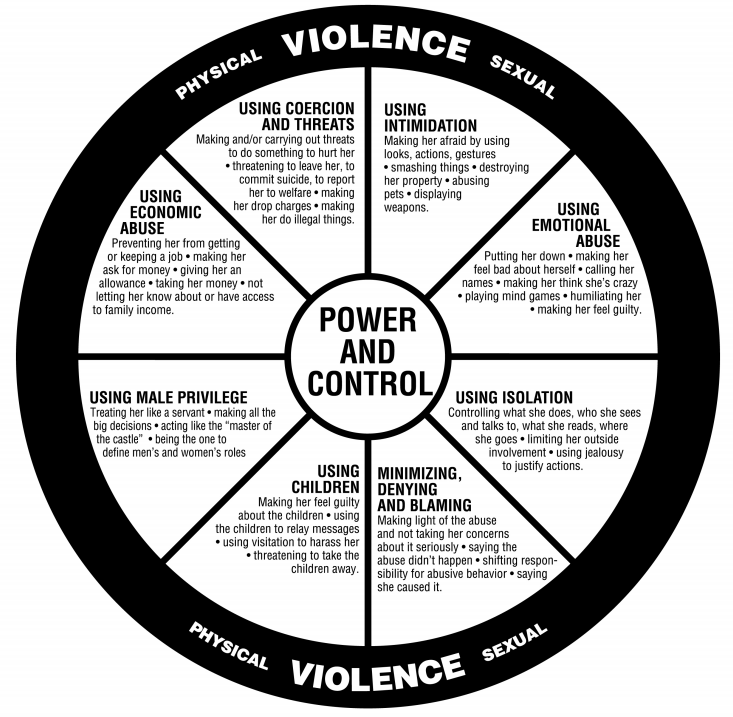Domestic Violence
What Is Abuse?
Domestic violence can happen to anyone of any race, age, sexual orientation, religion, or gender.
It can happen to couples who are married, living together, or who are dating. Domestic violence affects people of all socioeconomic backgrounds and education levels.
Abuse is a repetitive pattern of behaviors to maintain power and control over an intimate partner. These are behaviors that physically harm, arouse fear, prevent a partner from doing what they wish or force them to behave in ways they do not want. Abuse includes the use of physical and sexual violence, threats and intimidation, emotional abuse, and economic deprivation. Many of these different forms of abuse can be going on at any one time.
Power & Control Wheel to describe most accurately what occurs in an abusive relationship.
Think of the wheel as a diagram of the tactics your abusive partner uses to keep you in the relationship. While the inside of the wheel is comprised of subtle, continual behaviors, the outer ring represents physical, visible violence. These are the abusive acts that are more overt and forceful, and often the intense acts that reinforce the regular use of other subtler methods of abuse.
Warning Signs and Red Flags
It’s not always easy to tell at the beginning of a relationship if it will become abusive.
In fact, many abusive partners may seem absolutely perfect in the early stages of a relationship. Possessive and controlling behaviors don’t always appear overnight, but rather emerge and intensify as the relationship grows.
Domestic violence doesn’t look the same in every relationship because every relationship is different. But one thing most abusive relationships have in common is that the abusive partner does many different kinds of things to have more power and control over their partner.
If you’re beginning to feel as if your partner or a loved one’s partner is becoming abusive, there are a few behaviors that you can look out for. Watch out for these red flags and if you’re experiencing one or more of them in your relationship, call or chat online with an advocate to talk about what’s going on.


